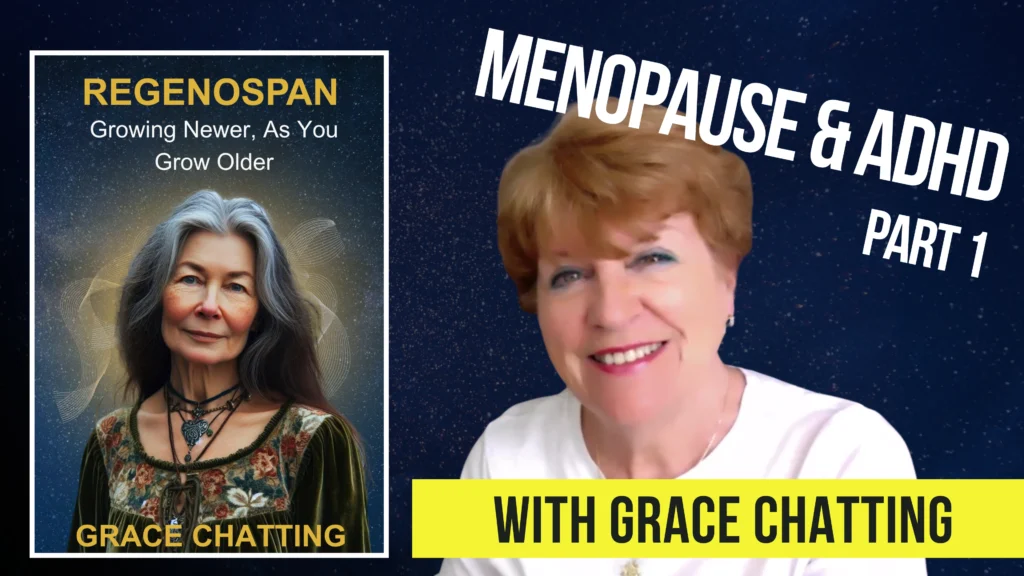Menopause and ADHD: What Every Neurodivergent Woman Deserves to Know – Part 1
For many women, midlife is a time of immense change – physically, emotionally, and mentally. If you’ve found yourself feeling overwhelmed, foggy, or simply not yourself, you’re far from alone. What you may be experiencing is the convergence of two powerful forces: the hormonal shifts of menopause and the neurological patterns of ADHD — often undiagnosed until adulthood.
In this post, we’re starting at the root to explore what’s really going on in your brain and body, and why it’s time to talk about it differently.
What Is Menopause — and When Does It Actually Begin?
Menopause is often misunderstood as a single event — the end of your periods. But in reality, it’s part of a broader transition that begins much earlier, known as perimenopause. This phase can start in your mid-to-late 30s and last for several years. It’s during this time that your hormone levels, particularly oestrogen, begin to fluctuate and gradually decline.
You might notice your periods becoming irregular — lighter or heavier, shorter or longer. But that’s just the beginning. You may also start experiencing:
-
Sleep disturbances
-
Mood swings
-
Low energy
-
Forgetfulness or “brain fog”
-
Increased anxiety or irritability
Menopause itself is marked by the point when you haven’t had a menstrual period for 12 consecutive months. Once you cross that threshold, you’re considered post-menopausal. But this timeline doesn’t capture the real complexity of what’s happening in your brain and body.
The hormonal changes that underpin menopause affect far more than your reproductive system — they also influence how your brain functions, how you process emotions, how well you sleep, and even how you cope with daily life.
ADHD in Women: The Silent, Often Missed Diagnosis
Now here’s where things get even more interesting — and often more complicated. Many women discover during perimenopause or menopause that they may have been living with ADHD (Attention Deficit Hyperactivity Disorder) their entire lives, without ever realising it.
Traditionally viewed as a childhood condition affecting hyperactive boys, ADHD in girls and women has been largely underdiagnosed, misunderstood, and masked. Women with ADHD are often:
-
Highly creative and intuitive
-
Emotionally sensitive and empathetic
-
Prone to overthinking and perfectionism
-
Struggling with focus and organisation, especially under stress
Rather than being disruptive in the classroom, girls with ADHD often internalise their challenges. They may be labelled as “daydreamers”, “anxious”, or “disorganised” — but their struggles are very real. Many learn to mask their symptoms to fit in, only to find these strategies start to fall apart during midlife.
The Hormonal-Neurological Link: Oestrogen and Dopamine
So what’s the connection between menopause and ADHD? It comes down to brain chemistry — specifically, the relationship between oestrogen and key neurotransmitters like dopamine and serotonin.
Dopamine plays a central role in:
-
Motivation
-
Focus and attention
-
Emotional regulation
-
Reward and pleasure
Oestrogen helps to regulate dopamine levels in the brain. So when oestrogen starts to fluctuate during perimenopause, women with ADHD may notice a significant worsening of symptoms — even if they had previously managed well.
Common midlife experiences such as brain fog, emotional volatility, and difficulty concentrating can become much more intense. For those who’ve never been diagnosed with ADHD, it can be a confusing and even distressing time. You may wonder, “What’s wrong with me?” or “Why can’t I cope anymore?”
The truth is, it’s not about weakness. It’s about biology — and the impact of two major systems (hormonal and neurological) intersecting in profound ways.
It’s Not “Just Hormones” — and It’s Not “Just ADHD”
If you’re feeling like you’re falling apart, please know this: you’re not. What you are experiencing is a perfect storm of hormonal shifts and cognitive challenges. And it’s not your fault.
For decades, women’s experiences at midlife have been minimised or misunderstood. Many are told their symptoms are “just hormones”, or worse — that they’re being dramatic, forgetful, or lazy. But science is catching up, and we now know that the combination of perimenopause and ADHD requires a far more nuanced, compassionate, and informed approach.
This isn’t about “fixing” yourself. It’s about recognising what your brain and body are going through — and finding the support, tools, and strategies that actually make sense for you.
Final Thoughts: You’re Not Alone — and You’re Not Broken
If this resonates with you, take a deep breath. You are not broken, and you are certainly not alone. More and more women are beginning to understand the interplay between ADHD and menopause, and with that understanding comes the ability to advocate for themselves, access treatment, and reclaim clarity and confidence in midlife.
This is the beginning of a conversation — not the end. In the next part of this series, we’ll explore how to get support, what treatment options are available, and how lifestyle shifts can make a world of difference when it comes to managing both ADHD and menopause.
You can buy my book Regenospan: Growing Newer As You Grow Older here!

